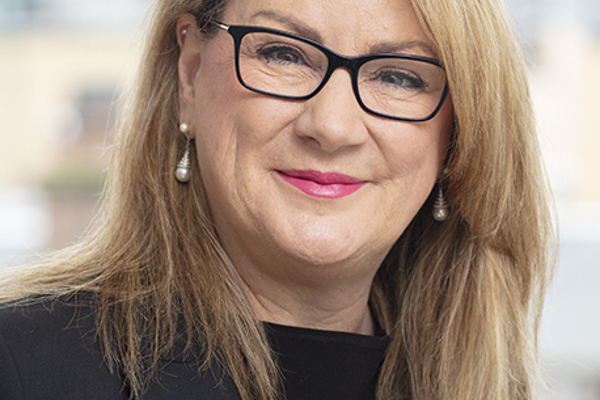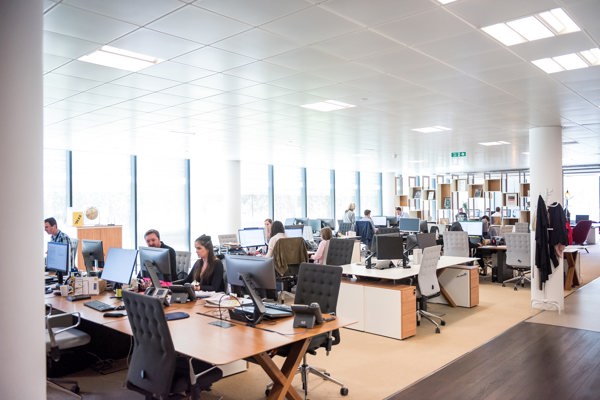We marked this monumental month with an array of exciting activity. From our coffee morning, which gave colleagues the chance to gather, enjoy some refreshments, and share experiences, to our 'Walk with Pride', which saw clients, colleagues and friends walk together in solidarity and support.
It has also been a welcome opportunity to collaborate with Historic Environment Scotland (HES) and the Law Society - see the article on improving diversity and inclusion the legal profession co-written by Yvonne Brady - in our efforts to highlight and share progress and best work practices going forward.
Although there is much to celebrate from Pride month, there is still much to be done - within our workplaces, communities and throughout our sectors. Real change must come from working together and learning from one another continuously, and turning our words into meaningful action.
Below we take a look at lessons learned, and the impactful ways, in which both HES and ourselves are focusing on fostering an LGBTQIA+ inclusive culture all year-round:
Focus on inclusivity
We are grateful to have a diverse workforce and leadership team, so our focus is on ensuring our people feel like they can bring their whole selves to work. Recognising difference is important, but in order to create workplaces where people feel welcome, safe and respected, our role is to ensure that everyone feels they have more in common with one another than they might at first believe.
Let your people drive culture change
At both organisations, our people have agency to create welcoming, inclusive workplaces.
Here at the firm, our Employee Resource Groups (ERGs) give colleagues autonomy to set their own priorities, and with direct support from the firm's leadership, allows them to create the culture they want to see through their own initiatives. Likewise, at HES, staff forums and networks are core to equality and inclusion work, with the organisation having six different staff networks. This represents HES’ commitment to empowering employees; giving a platform to all and listening to their voices equally.
Hearing from individuals about their lived experience helps to create better awareness and an understanding of the issues faced, and emphasises the importance of an intersectional approach in the organisation’s equality-focused work.
As such, there has been lots of engagement through these groups, which have proven to be influential and effective at starting discussions and instigating collaboration - as well as bringing insight from their own lived experience to help shape attitudes and raise the standard of working practices.
Bridge the generation gap
There has been an important generational shift in what is expected of inclusion in recent years, with the younger members of the LGBTQIA+ community calling for greater advocacy in the workplace. In order to cultivate a better work culture, engagement with Gen-Z and Millennials is vital to further understand their unique challenges and circumstances.
HES is making strides on this engagement, and has recently signed up to the LGBT+ Charter Mark Programme, run by LGBT Youth Scotland. Their aim is to make Scotland a more inclusive place for young people. The programme supports organisations to become more LGBT+ inclusive and focuses on several areas of work across the organisation and user experience.
Work is also being undertaken to educate the wider workplace on the importance of language, communication and addressing unconscious biases.
HES' LGBT+ Network has been striving to help colleagues address people in gender neutral ways, and has been working on how this language can be incorporated into the organisation’s communications to be more inclusive. The effect of this work is to raise the standard across the whole country - helping make our workplaces more inclusive from Lerwick to Hawick and beyond.
And here, colleagues are offered unconscious bias training at all levels of the firm, with the aim of highlighting the underlying biases they hold that they may not realise exist. The training is delivered both online and as a taught programme, and provides the foundation applied throughout the services we deliver to clients every day and their experience working with our people.
Strive for continuous improvement
Inclusivity is not a destination, but a journey that goes well beyond Pride Month, and we each must continue to make steps towards progress. When it comes to long-lasting cultural change, visible commitment from employees, senior leaders and partner organisations matter as much as HR policies and initiatives.
Change must be felt holistically throughout the business, from using our proper pronouns to allying and attending ERG events. At both our firm and Historic Environment Scotland, it’s about continuing to foster a welcome and cohesive workplace for all – where people feel they can be themselves and know that they belong.
This article was written in collaboration with Historic Environment Scotland.


